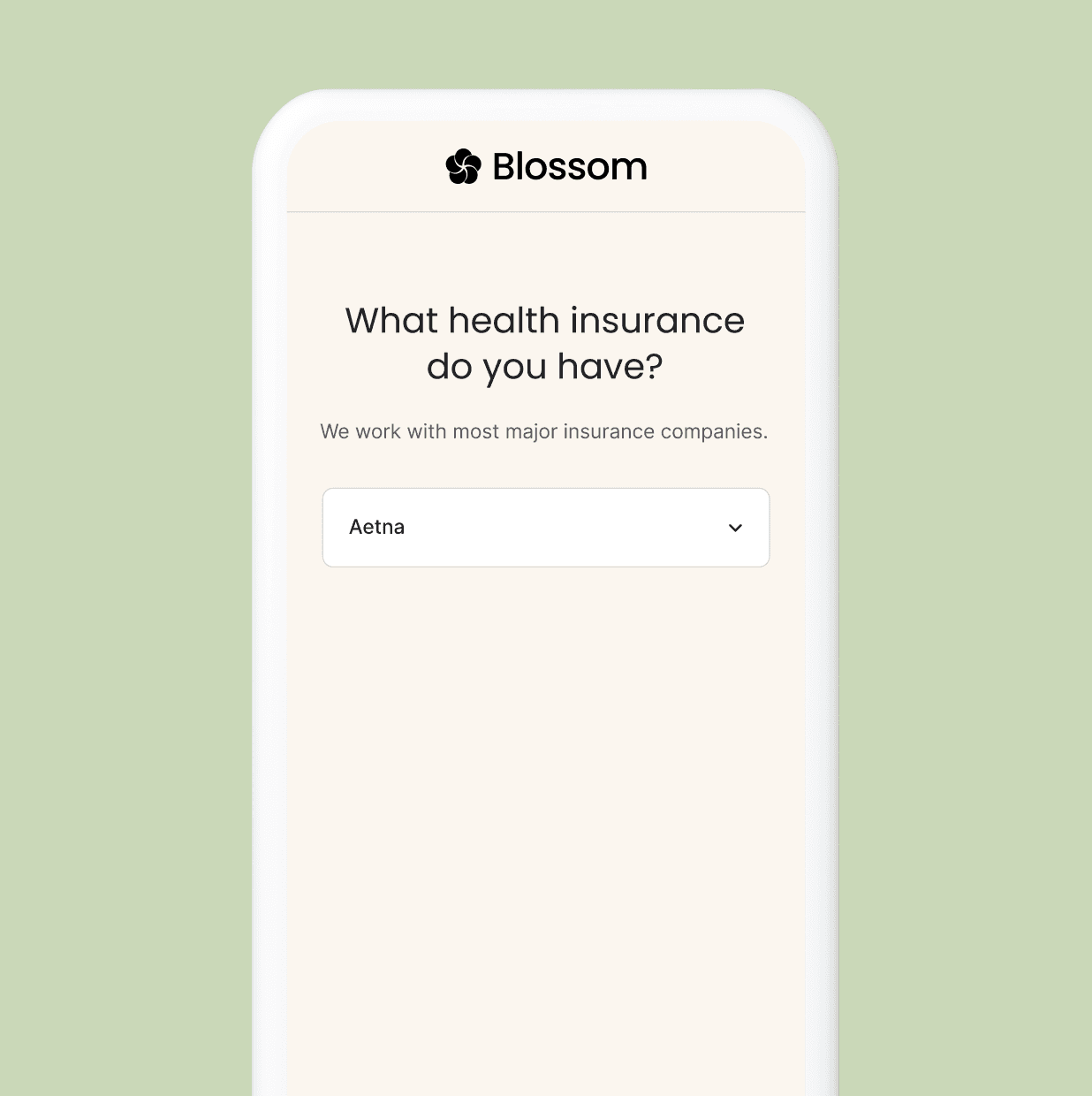Most patient copays $0-$22
Care that’s covered
All our psychiatrists take insurance.
Flexible Scheduling
Virtual visits make showing up easy.
Responsible prescribing
Medication, only as needed.
The core mental health conditions we treat.
What is Obsessive-Compulsive Disorder (OCD)?
Obsessive-compulsive disorder is a mental health condition characterized by persistent, unwanted thoughts (obsessions) and repetitive behaviors or mental acts (compulsions) that a person feels driven to perform. OCD affects how the brain processes worry and doubt, creating a cycle where obsessions trigger intense anxiety, and compulsions temporarily relieve that anxiety.
Unlike occasional worries or preferences for order, OCD involves intrusive thoughts and ritualistic behaviors that consume significant time—often an hour or more daily—and interfere with work, relationships, and daily functioning.
People with OCD experience obsessions as distressing and unwanted, not as pleasurable thoughts. Common obsessions include fears of contamination, fears of harming others, need for symmetry or exactness, and unwanted sexual or religious thoughts. Compulsions are behaviors performed to reduce the anxiety caused by obsessions, such as excessive hand-washing, checking, counting, arranging, or seeking reassurance.
Symptoms and Types of OCD
OCD symptoms vary widely, but they follow a consistent pattern of obsessions leading to compulsions.
Common Obsession Categories
Contamination: Fear of germs, dirt, illness, or environmental contaminants
Harm: Intrusive thoughts about accidentally or intentionally hurting yourself or others
Symmetry and Order: Need for things to be arranged "just right" or in perfect balance
Forbidden Thoughts: Unwanted sexual, religious, or violent thoughts that conflict with personal values
Common Compulsion Categories
Cleaning and Washing: Excessive hand-washing, showering, or cleaning of objects and surfaces
Checking: Repeatedly verifying that doors are locked, appliances are off, or that you haven't harmed anyone
Counting and Repeating: Performing actions a specific number of times or repeating behaviors until they feel "right"
Mental Rituals: Silently praying, counting, or reviewing events to neutralize obsessive thoughts
OCD Treatment Options
Effective treatments exist for OCD, with research showing that combination therapy often produces the best outcomes.
Cognitive Behavioral Therapy (CBT)
Exposure and Response Prevention (ERP), a specialized form of CBT, is considered the gold standard psychological treatment for OCD. ERP involves gradually exposing yourself to anxiety-triggering situations while resisting the urge to perform compulsions.
Medications
SSRIs: Sertraline (Zoloft), fluoxetine (Prozac), fluvoxamine (Luvox), and paroxetine (Paxil) are FDA-approved for OCD
Clomipramine (Anafranil): A tricyclic antidepressant specifically effective for OCD, though with more side effects than SSRIs
Higher doses are typically needed for OCD compared to depression treatment
Alternative and Emerging Treatments
Acceptance and Commitment Therapy (ACT)
Deep brain stimulation (for severe, treatment-resistant cases)
Transcranial magnetic stimulation (TMS)
Intensive outpatient programs specializing in OCD





